#a common theme for ponyboy
Explore tagged Tumblr posts
Text
I'm not a fic writer. never have been, never really a thing a i do
BUT! i have this very specific concept in my mind: ponyboy who hates change, post-story.
... I'll explain it shortly. but er, first, here's a couple excepts from the fic I'm writing so far about it.
MONDAY: (excerpt cut from mid-day)
At lunch, it was just as bad. He was trying to read, hoping the words on paper would distract him from the words in his head.
Curly and his friends at the table were joking around and fighting. Curly glanced over at Ponyboy with a smirk, and smacked his book down playfully, and it made a thwip-slap sound as it fell. Ponyboy just stared, expression blank and sunken.
“What’s up, horseguy? Where’s your head at?” Curly teased, picking it back up and tossing it onto the table where it slid across to another friend, who shoved it Pony's way.
Ponyboy just shrugged. His thoughts were already flooding back up with words, that simple smack felt like the end of it all in that moment. He could feel his throat begin to close up, and his eyes warm with wetness.
It didn’t take long for the others to get distracted with each other again. Ponyboy didn't bother to pick the book back up.
SATURDAY: (excerpt from evening time.)
“You playing me, Sodapop?” Two-Bit snickered, a sharp glare making its way across the kitchen table to Soda, Steve and Pony right in the middle of it.
“Nope.” He popped his lips on the p, giving Two-Bit a sly grin back as he put down a card.
Ponyboy sat there with his cards in his hands. He had been playing, but it's not like he was really paying much attention to it. He was spaced out, out of the loop, doing his Ponyboy thing. Thinking.
Steve grumbled, kicking Two-Bit lightly and telling him to play a card. Two-Bit’s gaze never left Soda as he placed down a set of cards. The rest of the conversation buzzed out as Ponyboy went back to staring at his hand.
Something feels off. Maybe it's just because he's stuck in his head, but there's an obvious reason as to why he's been stuck in his head all week. He just can't place it.
that's all i wanna show off since it's the only parts i like so far. so far, all of these days are being placed of scenes that made his day feel the most terrible.
I'm mostly reflecting my own grief onto ponyboy in this, last year January i had one of the worst weeks that built up from excused emotions and overwhelming thoughts from things month before ... so, y'know, as someone who grieves, i thought I'd write that into Pony. Unfortunately.
the thing that makes him crack though is the funniest (not really), because it's what made me write the entire fic because I noticed myself thinking about it: His hair growth.
I cut my hair after my loss, and Pony's was still freshly bleached. I kind of wanted to work with how he'd react to his hair growing without his head. In a metaphorical sense, or however you put it :3
I'll be back with more, but i wanted to share it just for now!!!
#my writing skills are moderate#but my trauma strives even stronger to help me with it#the outsiders#ponyboy curtis#fanfiction writings#work in progress writing#ponyboy grieving#a common theme for ponyboy#but no one really talks about that blonde hair he's got#coming from a native mother i just think it'd be neat to give ponyboy the same stress about his hair as i do whenever time passes#is this anything#hopefully it is#curtis gang#curly shepard#he's only there because he's the only friend of ponys i could think of unfortunately#i still hate curly
10 notes
·
View notes
Note
this might be a weird question so feel free to ignore I’m just genuinely curious. I know a lot of this fandom is in the queer community and puts a lot of that into fics and stuff and I was wondering if you’d ever had the thought of adding some queer themes or character headcanons to the SGUN timeline? This is not like a demand or some shit LMAO I’m just genuinely curious cause I find it’s a common theme in the fics
This is a super good question! And TY for asking it so respectfully!! Buckle up folks. Also this is just my own little take on the characters and how they fit in my story and me as a writer, I def read ships other people write for the fandom 😂
Tbh I’ve waffled back and forth on it because I feel like some of the ships a lot. Ones that I sorta could see in my mind for my fics specially are Steve and Soda, also maybe Ponyboy and Johnny. I have eaten up fics about these pairs tbh 😂
however I waffle personally BECAUSE
1. (Less important) I feel like a really impactful point of the outsiders is like male friendships and that level of vulnerability is so rare and I really like the way that it sorta focuses on boys being able to have those deep emotional and physical connections without it immediately equating to a romantic relationship. Like part of the beauty of Steve and Soda’s friendship to me is that they can be vulnerable with each other and rely on each other for emotional support as friends which was like not a big thing especially in the canon time period. However, they also would work well romantically imo. I need the angst of them being in Oklahoma in the 60’s, so as I said I waffle 😂 also there were thoughts of sprinkling Steve and Soda in the background of SGUN, I also thought about having a little Parry reference there too (Darry out here having Bi energy to me, but that’s a whole other story lol).
2. (Importanter point 😂) I’m a cis straight (as far as I know lol, haven’t really dated anyone ever so 🤷🏼♀️) white woman, so I do want to really ensure that I have been respectful of the queer community (and other minorities) when I’m writing. I know there’s a lot of instances where one could argue straight women fetishize mlm relationships etc, so I also think that plays a role in me wanting to be mindful of making sure to not elevate my voice above queer community authors or not representing that community accurately if that makes sense? Idk like also I just don’t ever want to feel like I’m speaking about something I’ve never experienced and it coming off as disingenuous or disrespectful as many people have actual personal experiences with the topics I would be writing about. All this to say partially I’ve just been more neutral to be cautious because in a lot of ways I come from a place of privilege and I take that very seriously and try to constantly be aware the implications of that, both in my personal writing and also as a healthcare provider. Basically, I kinda worried myself into a little corner and was like it’s not my place to write those kinds of ships for this fandom 😂
All of this to say, I am not opposed to writing the aforementioned ships because I do feel like the shifting dynamics would be fun to explore, but I think I’ve just been cautious because I’m a nervous Nelly and want everyone to feel respected ❤️
Sorry this got long, I’d love to hear y’all’s thoughts, but let’s keep it respectful tumblr 😂 (I have a crippling fear of internet discourse so bad pls be nice)
#dallas winston#darry curtis#ponyboy curtis#sodapop curtis#the outsiders#johnny cade#steve randle#two bit mathews#the outsiders musical#hopefully this reaches its target audience idk#betty merrill#serious post
22 notes
·
View notes
Note
Yes, Loop-de-loop is very much correct.
Thank you for saving a room for me.
Also, I may or may not have inspired my new blog theme(?? idk what its called) by this one's (: But today, i've been listening to music. Dark Red - Steve Lacey is def Ponyboy from when their walking Cherry and Marcia home to the part where Ponyboy and Johnny are at the park. And Don't Cry - Guns N' Roses I have two things Dallas' mother's death - She'd be telling him the lyrics from heaven(or the afterlife, whichever you believe in) Or
Johnny and Dallas' death.
(Listening to Dont Cry rn. Im fr gonna cry, I love the song so much.) ( What does a tick and the Eiffel Tower have in common?)
Your theme is very cute! And of course, we’ve got more than enough rooms, I’m sure of it.
These lines for the first one - “Something bad is 'bout to happen to me / I don't know it, but I feel it coming”
These for the second one - “Don't you cry tonight / I still love you, baby…But you'll be alright now, sugar / You'll feel better tomorrow”
(Please tell me the difference, my dear Ash!)
2 notes
·
View notes
Text
Coming of Age: The Outsiders
There are few experiences that are told in stories that are truly universal.
I’m not talking about universal themes, ideas that bring people together, like good vs. evil, or loss, nor am I talking about universal dreams that people have, of making something of ourselves, of being remembered, or of finding true love. These are things that humanity has told stories about as long as storytelling has been an art form.
However, while most of us, as audience members, can get behind stories that tell us what we want to go through, it’s a little bit rarer for a story to truly show us what we are going through.
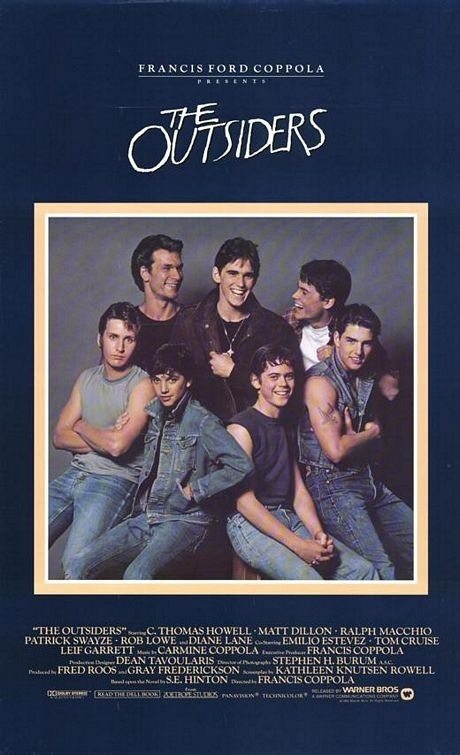
Think about it. Not all of us have fallen in love, or been on the run from the law, or had to fight off a horde of zombies, or driven cross-country, or moved, or taught an entire town of people how to dance. These are stories full of ideas that we may be able to relate to, but not necessarily experiences.
Which isn’t a bad thing.
Humans don’t always want to go to theaters to watch their life story, their experiences, things they themselves have gone through. For many years, storytelling has been a form of ‘escape’, taking feelings that humans share and using those feelings, coupled with imagination, to tell stories that seem bigger than our own.
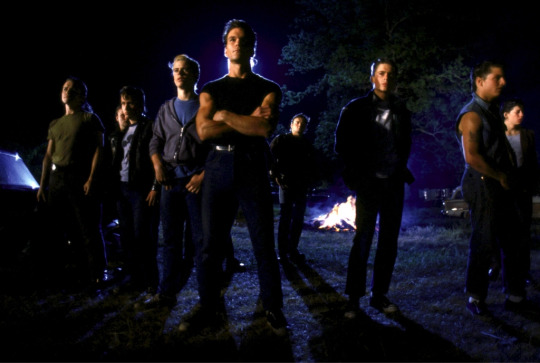
However, there are a few exceptions, such as when it comes to the genre of coming of age.
The ‘coming of age’ genre is described by TVTropes as: ‘A story featuring an adolescent making the mental leap from child to adult.’ If this is the case, then the coming of age story is, in fact, one of the few genres that is a universal experience, with each of these stories focusing on the event of maturity, something that virtually all audiences have to grapple with at some point or another.
Coming of age is a bit of a different focus for a story for one important reason: it is both a theme and an event. The idea of coming into your own, becoming an adult, is one that doesn’t necessarily happen on a timetable, but at some point, everyone has to face that experience. A coming-of-age story comes at it’s audience with one simple lesson: One way or another, we all have to grow up.

As a result, it’s a fairly popular subgenre, with a fairly wide variety of topics:
Getting a driver’s license. First love. Arguments with parents. Struggles with identity. Loss of innocence. Planning a future. These are all common elements often found in these sorts of stories, and whether in big ways or small, many of these types of storylines tend to find their way into many films about youngsters, such as Stand By Me, American Graffiti, Racing with the Moon, and plenty more. As it turns out, a lot of stories have a lot to say about growing up.
One of these stories is The Outsiders.
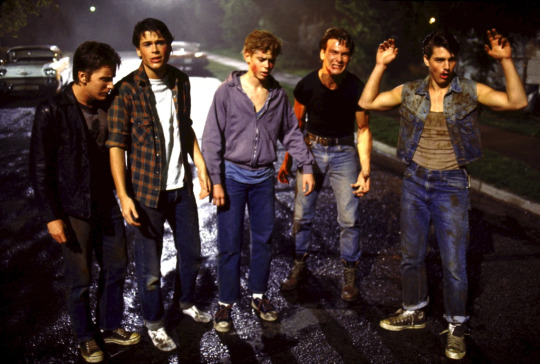
The story of The Outsiders began as a novel, written by S. E. Hinton in 1967. The book details the life of Ponyboy Curtis, a teenager involved in a gang of ‘greasers’ who is raised by his older two brothers following the death of their parents, as he becomes involved in the conflict between the ‘greasers’, and a gang of upper-class teenagers, the ‘Socs’.
The book was released to a fair amount of controversy, controversy that still exists surrounding it to this day (due to the family dysfunction, smoking, drinking, language and gang violence portrayed within), but immediately, something about The Outsiders resonated with a young audience, to the point where it codified, if not invented, the Young Adult genre of fiction and is now included in most American school curriculums for English class.
In 1983, Francis Ford Coppola directed a film adaptation of The Outsiders, with the help of S.E. Hinton herself, casting a series of up-and-coming nobody actors who were all quickly catapulted to fame following their involvement with the film. The movie adaptation has long been hailed as one of the most accurate book-to-screen translations of all time, and, much like the book, it became a very influential event in the lives of many young people since the time of its release.

The question is, why?
The Outsiders is widely regarded as one of the greatest ‘coming of age’ stories of all time, but, in all honesty, it doesn’t share a lot in common with the tropes and stories previously mentioned. Ponyboy’s parents are long gone, far removed from the picture of his life now, raised by his brothers Sodapop and Darrel. There’s no ‘learning to drive’, or choosing a future, there is instead the story of a boy dealing with the idea that division, and the hatred that comes of it, has dangerous consequences. This is a story about a lot more than just growing up. It’s about family, about friendship, about ‘staying gold’, remaining innocent and appreciating life, about class, about life and death. In the end, it is about a boy becoming a man, through circumstances that are far from ideal.
And the way it does so is all summed up with the most well-known quote from the story:
“Stay gold, Ponyboy.”
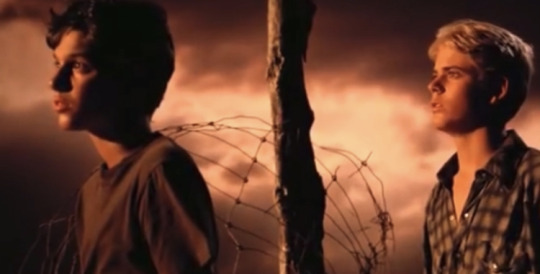
But before we explain that, we need some background.
Ponyboy Curtis is the youngest member of the Greasers, a gang that consists of, (among others) his two older brothers, the recently attacked Johnny Cade, juvenile delinquent Dallas Winston, alcoholic with a sense of humor Two-Bit Matthews, and Steve Randle, who works at the gas station with Sodapop.
The Greasers are in direct opposition with another gang, the Socs, much wealthier kids from the other side of town. These are the ones who recently beat Johnny up, and, at the beginning of The Outsiders, attack Ponyboy as well, fought off by the other Greasers.
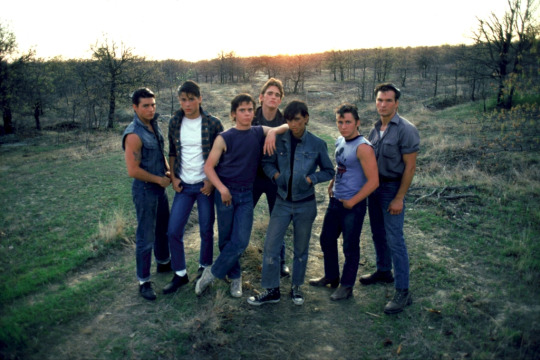
Instantly, the picture of the world that Ponyboy Curtis lives in is painted for us: a troubled kid, in a troubled neighborhood, plagued by violence from both sides.
At home, things aren’t much better.
Ponyboy is cared for by his two older brothers, Darrel, who gave up his opportunity to go to college in order to provide for the family unit, and Sodapop, who dropped out of school to work at a nearby gas station. While Ponyboy gets on fine with Sodapop, there is clear tension between him and Darrel, who is frustrated by Ponyboy’s disobedience with the rules of the house and disregard for his own safety.

There’s more to Ponyboy’s world than just the Greasers, ‘us’, and the Socs, ‘them’. During the story of The Outsiders, his perspective changes, multiple times, in fact.
Early in the story, Ponyboy meets Cherry Valance, a Soc girl who is nice to him, has a conversation with him, and seems to regret the gang rivalry. Although she isn’t wild about some of the company he keeps (especially Dallas), she doesn’t seem like the ‘other’ Socs. After meeting her, however, later that night, Cherry’s boyfriend, another Soc, and his friends attack Ponyboy and Johnny together, and in the ensuing scuffle, Johnny kills Cherry’s boyfriend in self defense. Terrified, the boys, with the help of Dallas, go on the run.
Later, the boys return, prepared to plead guilty to self-defense, but before they can, Johnny is badly injured while rescuing kids from a school fire, and is hospitalized, being hailed as a hero (along with Ponyboy and Dallas) in the process. Upon their return, a trial date is scheduled for the murder of Bob, Sherry’s boyfriend. Meanwhile, the Greasers and the Socs arrange a ‘rumble’, a brawl between the gangs.
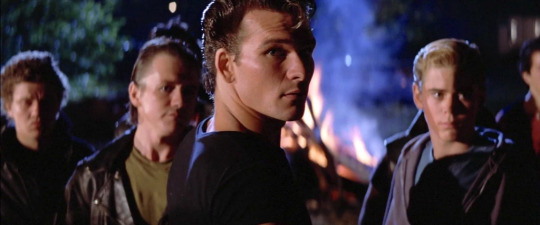
After the rumble, Johnny succumbs to his wounds in the hospital, and Dallas, unable to cope, commits suicide via cop. At the trial, Ponyboy is found not guilty of murder, and Darrel is able to keep custody of him. Ponyboy returns to ‘normal life’, where Sherry ignores him at school, and Sodapop breaks up another fight between him and Darrel and convinces them to live peaceably together.
There’s more to it than that, of course, but that’s the bare bones basics. So, why does it matter in terms of a ‘coming of age’ story?
It all has to do with a Robert Frost poem.

While Ponyboy and Johnny are laying low from the law, Johnny watches a sunset, and remarks on how pretty it is. Ponyboy responds with a poem by Robert Frost, Nothing Gold Can Stay:
Nature’s first green is gold,
Her hardest hue to hold.
Her early leaf’s a flower;
But only so an hour.
Then leaf subsides to leaf.
So Eden sank to grief,
So dawn goes down to day.
Nothing gold can stay.
The words to the poem come up later, on Johnny’s deathbed, as he tells Ponyboy to ‘stay gold’. While it’s one of the most quoted lines from the film, it’s also one of the most important, from a thematic standpoint.
In both the context of the poem and the story, the idea of ‘staying gold’ is a simple one: remaining innocent, fresh, young. Nothing innocent can stay, everything grows up, matures, becomes tainted by the world.
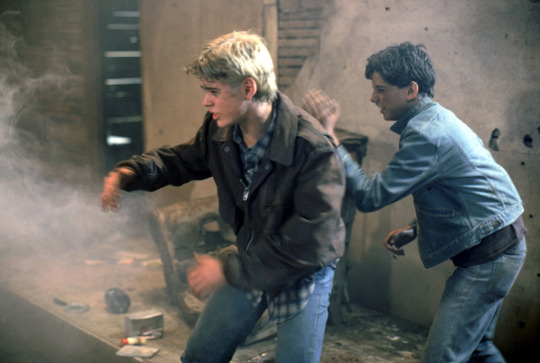
In other words, the poem itself is about coming of age.
So, how does that apply to The Outsiders?
Throughout the story, our focal point, Ponyboy, doesn’t grow up physically. He’s the same age at the end of the story as he was at the beginning. Very little in his situation changes: he ends the story still living with his brothers, going to school. There’s no big transition in his life, he doesn’t strike out on his own, despite conflict with his authority-figure big brother, he remains roughly where he is.
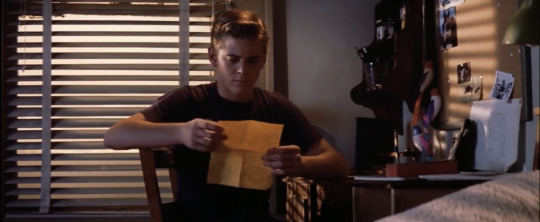
But with that said, Ponyboy does come of age during this story, of a kind.
In The Outsiders, the idea of ‘coming of age’ isn’t ‘coming into your own’ in the sense of moving out on your own or becoming an adult, partially because Ponyboy, the main character, has seen what that looks like in every single person surrounding him: his oldest brother’s childhood gone as he is forced to take on the responsibility of being a ‘dad’. Sodapop drops out of school to work. Two-Bit is an alcoholic at a young age. Dallas is a delinquent, committing violent crime before he’s a full grown man, and Johnny kills a member of the rival gang, later commenting on it:
“Shut up about last night! I killed a kid last night. He couldn’t have been over seventeen or eighteen, and I killed him. How’d you like to live like that?”

In the end, that’s the story’s main point: not one of these boys should be this old already. Johnny shouldn’t have been attacked. Dallas shouldn’t be dead. Darrel shouldn’t be shouldering his entire family to keep them afloat.
And yet, this is where they are.
The rumble in The Outsiders is not a righteous battle between two sides. It is two groups of kids, beating each other nearly to death. The death of Bob is tragic, as is Dallas’s end, and Johnny’s. These are children, and Ponyboy is too.

The point of the Robert Frost poem, the idea of ‘staying gold’, and why Johnny wants it for Ponyboy, is, actually, the inverse of the typical ‘coming of age’ story. The idea of holding onto your innocence in the face of a world that tries to grow us up prematurely, is a central one to the story of The Outsiders, and the worst thing about it is that while it may be a lesson learned, it’s not one necessarily taken to heart.
Although Ponyboy is the youngest of the group, both physically and mentally, he has still seen far too much of the ugly side of the world: losing both his parents, the violent gang warfare, Johnny’s death and Dallas’s suicide-by-cop. Ponyboy is already forced to take part in a world too old for him, to the point where it’s jarring when he and Johnny are on the run and he pretends to be a kid playing soldier. It’s correct for his age group, but Ponyboy is already ‘too old’ for it.
But there is hope.
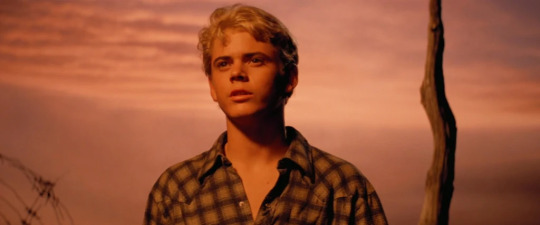
Ponyboy still watches the sunsets. He goes back to school, and he moves on, with Johnny’s words at his back. He is changed, yes, and he has grown up some: half man, half boy. He understands things now, like the fact that the Socs and the Greasers are not that different, and that Darrel loves him and wants what’s best for him, even if he isn’t the best at showing it.
But in the end, Ponyboy isn’t a man. Not yet. There is still time for him to watch the sunsets. There is time left, in the end, for him to stay gold.
Thanks so much for reading. I hope to see you guys in the next article.
24 notes
·
View notes
Note
Will you do some aged up (SFW obvi) Steveboy HCs? You write the best stuff for them lol
AHHHH YES OFC!!!! Thank you!!!!! Steveboy superiority!!!
Ok so I hc that they realize start to get to know each other after Pony goes to college/finished college
At first Steve is still getting over the borderline toxicity of the relationship he had with Soda & trying to find himself away from the friendship
Pony is trying to find himself outside of how he is seen by his family & anyone else (especially steve) who still sees him as a child
I think before they start ‘dating’ or anything like that, they slowly become friends
Like. Both of them are just lonely enough to want to find understanding & comforting in each other
They both try to hate it & kinda do want to hate it; the fact that they are getting closer & actually do have a good bit of things in common
But then slowly & over some time they both start to mutually crush & neither of them wants to admit it
The whole gang is very 🤨 that they actually want to hang out with each other
They are dating without knowing it. They go on car rides together. Have long talks. Go out for good. Etc. But both of them are too stubborn in the fact that they despised each other growing up to admit they are practically together
So then maybe one day out of no where, Pony is just like ‘screw this’ & lays a fat one on him
& then after that I think it would go from 1-100 real quick
Like. They finally have an understanding that no matter what they do or how hard they try, that they are falling in love with each other
Help theyre so passive aggressive when it comes to confessions & ‘I like yous’
Going on forced dates & awkwardly sitting next to each other until Pony grabs Steve’s hand
(Joe credit) Pony forcing Steve to watch his favorite fancy movies & Steve being bored out of his mind but he will survive cause he likes Pony
Pony showing Steve all the drawings of him he did as a kid
Steve making fun of his theme (light heartedly)
They are very blunt with their banter & jokes but it’s ok cause that’s just his they are
Both of them agreeing they don’t want to be that stereotypical love story (marriage, kids, etc) & they’re just happy with each other
Pony being taller than Steve
Pony jumping on his back jokingly because of this
Pony kissing Steve’s nose & Steve insisting that if Pony does it one more time he will kick him in the shins so he has to bend down to kiss him
But he doesn’t, he likes it, he is completely infatuated
The whole gang making fun of them to the point it makes Steve visibly angry (Pony gets mad too, but doesn’t say it)
Lots of laying together on the couch
Steve stealing a license plate because it looked like Ponyboy’s name
‘Baby Curtis’ ‘Babe’ ‘Idoit’ - terms of endearment
Help I hope this is ok 😭
30 notes
·
View notes
Text
I was talking to someone on in light of my recent post about shipping mindsets (non-blood related sibling shippers), and we got into an interesting conversation about sibling relationships. Basically, what does it REALLY mean to be siblings, outside of the literal, genetic definition.
The way I see it, it’s all about “recognition” and “functionality”, which creates the commentary on how this relationship is presented and identifiable in fiction, not to mention between real life people. “Recognition”, in a sense, happens on the individual level, but can either be funneled through what otherwise is already established in society—this being what makes it something to BE identified by the individual—and/or, it can be gained and tailored by personal experience by said individual.
In other words, “What it means to be a sibling” is going to be dependent upon what can be understood through an established concept and/or an individual’s recognition of this concept’s functionality.
What? Expecting me to say: “Oh, it’s people who do this and this and this and this together...”? Yeah well, whatever I’d list down, it’d more than likely just be a component of what the “true” answer is, which is going to be interchangeable depending on who you ask and what they essentially recognize as a sibling relationship. It makes you wonder then, is there really a definitive answer? I don’t know if I can truly say yes in a way beyond the literal (especially in having a relationship as opposed to only just being siblings by fact), but what can be observed and compared are the commonalities between people’s recognition of this functionality. Somewhere between that is where a general answer can be noted.
You’ll find this common for most things, whether about romance, siblings, family, personality traits, themes, etc.—how many times have you heard: “well I wouldn’t do that” or “this is totally this” or just simply, “I see it this way”. Be a part of any Final Fantasy, Kingdom Hearts, Supernatural, etc.—ANY fandom, really and for more than just shipping. You’ll see this eventually.
Recognition of functionality. If it’s congruent with how someone can recognize it, then that’s what they’ll see it as. “I calls it like I sees it”, and all that.
This can go in a way of even symbolism or subtext that requires “pre-knowledge” outside of the text. These things are used a certain way because people decided it to...well, be understood a certain way. I mean, the color white being a symbol for this or that didn’t just happen out of thin air—this patterned usage and understanding was passed down as a way to be recognized and further utilized a particular way. More simple than that, like for adult jokes—these are purposely written in a way for an adult to understand because they’re expected to have the knowledge available to do so, where a child otherwise normally wouldn’t.
If we’re thinking about how do we get there—recognition—I tend to think about how the world essentially establishes these things as concepts to be understood.
“What it means to be [blank]”
Some societies differ on these things, of course, but even through the knowledge that different parts of the world might have, what you’d say, an “alternate criteria” to define these things—it’s evident to the idea of how our views on things are part of a wider establishment to be understood and recognized in a particular manner.
To break it down, the most basic understanding of what a sibling is comes from the literal—your brother or sister, whether by genetic means or lawful. Beyond that, there lies a function of which this typically happens—you’re reared together as a family, foundationally under platonic connections. Of course these two things don’t always coexist for some people seeing as people can have biological siblings that they weren’t raised with or have an adopted sibling that they’re raised with. But, when these two factors do coexist, then we easily go into what can be experienced within the function of being raised as siblings. The sibling function can even include the mentioned adopted siblings, where they hold the title officially and are reared despite the lack of genetic connection.
That’s where most of if not all the common tropes people think of originate.
But why do you even think of these as “tropes”?
This can either come from personal experience, or that of what you’ve, essentially, been taught through external means, such as media or other people’s experience—this is where establishment happens.
We grow up forming this palette of ideas that we use as a means to recognize the established concept here—which I believe media/fiction is a major influence in how the concept is widely spread to those on a very basic level. In a way, it might even determine the outcome of how people THINK they should act if in accordance to the concept.
“I grew up understanding this is what [blank] means, so therefore not only will it be how I recognize it, but it’ll also be the way in which I believe it should be expressed.”
Most people don’t think about this so intentionally, but if you start to wonder about the reasons as to WHY you think the way you do, this thought will eventually arise in some form or fashion. It’s almost kind of a “chicken or egg” scenario—is the way society thinks about sibling relationships based on the individuals thinking it first, or is it based on what’s represented as a collective and THEN given to the individual to essentially learn?
Ehh, kind of both, really.
For instance, in real life, why would someone get to the point of calling a friend a brother or sister? What would give them the idea to even do this?
One could point to personal experience: what an individual recognizes in association of “family” can be placed on other people, and if that individual has the thought process that has a “criteria” for what it means to be a sibling, they’ll thus place this where they see fit if they can recognize the criteria being met with that friend. It could even be more straight forward through their already existing sibling—if the relationship is similar, then it just naturally falls into place to call this friend of yours a sibling too.
For the second point, media/fiction is well known for painting the picture here:
“Got a friend who you’re really close to and have platonic feelings for [function]? Then they’re like a sibling to you!”
It isn’t advertised this way of course, but when you see this essentially represented in the information that you consume, an individual will then have that become a part of their palette to be recognized in their own or other people’s relationships. This definitely happens with romance A LOT.
You could have best friend you’re really close to, and maybe they’re like a sibling to you, but that doesn’t seem to stop this annoying kid from pointing out how you “look like a couple” or should “hook up already”. Through either or both of these points, a person can gain the idea to recognize these concepts for themselves, even if by the fact they may be wrong in what exactly is happening.
In fictional material, I believe judging this is typically much easier than it would be in real life. This is mostly due to the fact it’s just so much more...deliberate, whether it’s explicit or subtle, for how a writer does their thing. A writer is just another individual who has their own palette that they’ll express through their work—it either lines up with your own or it doesn’t. What tends to interfere with recognition is context (wooo!), where there lies a flexibility to manipulate the things that otherwise would be identified a different way—symbolism can be a great example, like through the use of motifs that are unique to a story. I never get tired of saying “context is key”, or better yet, “let context be your guiding key”, for my fellow Kingdom Hearts fans.
True love’s kiss? Romantic at it’s core, right? But then Maleficent (Angelina Jolie) comes and uses Maleficent’s true love for Aurora to represent this platonically instead. Frozen does this with with Elsa and Anna for their “Act of True Love”. Hell, I’ve even actually seen the “Jian Bird” representation used to convey the close, existential bond between sisters in a manhwa called “The Gamer”. The key thing is that the concepts here go beyond the connotation it might be widely known for, and thus allows the context to manipulate it for another recognizable meaning. Sometimes this isn’t even really a deviation of meaning—people just sometimes don’t understand how flexible some elements always were in general for how they can be recognized and utilized in fiction or real life.
“Oooh they hugged!! Romance is in the air! OH. MY. GOD. They smiled at each other toooo?!?! It has officially sailed guys.”
....uh, you DO know hugs aren’t limited to that, right? Right?.....Please say right.
Oh boy.
What we know and recognize might not always line up with the context of which the meaning resides, hence why you might have some people shipping characters with a sibling or other platonic relationship—the individuals doing so have found something represented between the characters to be congruent with their personal recognition of romance, even if the actual context is different for the character’s relationship. Sora and Riku, Aqua and Ven, Fang and Vanille, Yuna and Rikku, Noctis and Prompto, Fina and Dark Fina, Tanjirou and Nezuko, Sam and Dean, Ponyboy and Sodapop, Steve and Bucky, Elsa and Anna, Rapunzel and Cassandra—boy, I’ve seen it all and can go on forever. All are examples of relationships that have expressions where a fan might say “hey, I see it this way”, but if what they recognize for themselves is meant to be recognized in a different way via the context....
Conflict breeds catastrophe (Thanks Vision).
Most shipping tension in fandom then comes from whether or not a recognition of something is based on the individual or is based on the material conveying it on its own to be recognized as such. That’s about when terms like “canon” starts being thrown around willy-nilly. What we recognize and what the context is are two things that either line up, or they don’t, and thus we have the pool of interpretations that have a go at each other, some being fierce, meaningless fights and some being pretty great discussions that can often show the flexibility of a context’s meaning. This does line up with something I mentioned before in another post about subtext, and this is certainly related. A big question would be that, if what is in the context is meant to be recognized a certain way, was it REALLY presented in a way to, well, be recognized as what it claims to represent?
That breeds a larger conversation towards the establishment and meaning of all the individual things in question and how either context determines its meaning or if the subject inherently retains a specific meaning. e.g. holding hands or hugging doesn’t mean romance in every context, but confessing you “like like” (lol) someone will “always” have an association with romance or sexual nature...
You know, until someone has the interesting idea to have two people “like like” each other platonically because, you know....recognition?
There are maybe some things you can count on to mean certain things because, a real life person had to have written it and more than likely has at least some similar recognition patterns shared with their primary audience. Chances are, they wouldn’t be an individual who grew up in a place where their understanding of reduplication is opposite to, well, everyone else. But you never know, I guess. Again, there lies that point about subtext (here is the post, in case anyone is wondering) where you might be able to argue that, pretty much, a writer can make a mistake in their writing and mess up the whole process of recognizing elements within a context unintentionally, where it wouldn’t really BE subtext anymore.
Other than that, most people’s issues with recognition is interlaced with their ability to identify what these elements are. Between context and what can be understood as “established meaning”, usually the answer can be discerned if the writer is truly creating something to be understood by other people. That’s where authorial intent and THEIR recognition starts to be considered the most by the audience.
Buuuuut I’m gonna stop there.
I’m probably more rambling at this point, but it is an interesting and WIDE subject, so it is to be expected. It’s fun stuff.
#final fantasy#kingdom hearts#supernatural#frozen#shipping#fandom#tangled#demon slayer#fiction#subtext#final fantasy xiii#final fantasy xv
12 notes
·
View notes
Text
GOD IS TRANS

All my friends keep asking me ‘Are you happy?’/ Happy as a girl can be! Are you happy?
In 2017, I wrote for The Singles Jukebox that SOPHIE’s single “It’s Okay to Cry” was proudly, explicitly, beautifully artificial, and that its hyperreal video in which the artist danced topless in a synthetic rainstorm felt something like paradise. I said that its unreality didn’t matter to my emotional response. I agree with most of what I wrote, but I take back the last part. The unreality was, in fact, central to how SOPHIE’s work makes me feel.
SOPHIE’s breakout single, “Bipp,” posits, “I can make you feel better — if you want to.” Accompanying that melody, low bass tones rev and ripple, while high sounds bubble and bounce; there’s a feeling of elastic grace in its movement, like each sound is a molecule colliding into others. The adjectives critics reached for when it was released always carried that element of physicality. Patric Fallon writing for Pitchfork called it “sticky” and “rubbery”; Boomkat’s product description of the vinyl single compared it to “sugar-glazed silicon”; Killian Fox for the Guardian described the song in 2016 as “an elasticated squelching noise with a helium vocal on top.”
These themes pop up again and again in the writing around SOPHIE’s work. It’s rubbery, it’s sticky-sweet, it’s elastic, it’s mechanical, it revs, it screeches, it squeals. SOPHIE’s contemporaries, like Arca or A.G. Cook, might create music that feels alien or dreamy; SOPHIE’s music always felt like it referenced the physical world, but not in a way that you would expect music to do. SOPHIE would reference not physical instruments, but physical objects and materials.
This specific quality was integral to the work, and it was intentional. SOPHIE sculpted these sounds out of waveforms, instead of relying on samples. In an archived 2014 interview with Elektronauts, the artist talks about sound design as an exercise in defamiliarization: “The language of electronic music shouldn’t still be referencing obsolete instruments like kick drum or clap. No one’s kicking or clapping. They don’t have to!… You can just take a bassline made out of elastic and try it in metal.” In a video interview in 2018 with the German outlet Arte Tracks, the artist discusses making “sounds which cartoonize and exaggerate naturally occurring or organic sounds and phenomena, and materials that don’t exist at the moment.” One of the common adjectives used to describe SOPHIE’s work is “sculptural,” which carries the risk of casting the music as purely abstract; but it also demonstrates that SOPHIE’s sound art was also visual and tactile, while SOPHIE’s physical and visual work was purely conceived as a supplement to and a vehicle for the songs. In that same Arte Tracks interview, SOPHIE discusses the release of “It’s Okay to Cry” and the choice to show SOPHIE’s face and body for the first time in its video. Responding to the framing that this reveal was “brave,” the artist says that the intention wasn’t to create media attention by coming out, but to “use my body more as a material, as something I could express through and not fight against.”
SOPHIE married that philosophical framework to an artistic practice that prioritized movement and pleasure. The currents of kink and sexuality were central to the work — the 2014 single “Hard” opens with the lines “latex gloves, smack so hard/ PVC, I get so hard,” and in the Elektronauts interview the artist talks about synthesizing sounds for “latex, balloons, bubbles, metal, plastic, elastic,” physical materials that share a modern provenance and a fetishistic quality. On “Ponyboy,” from the artist’s 2018 studio album Oil of Every Pearl’s Un-Insides, distorted vocals bellow “Spit on my face/ Put the pony in his place.” But SOPHIE didn’t invoke sex as an end unto itself; instead, sex was an experience that could defamiliarize the omnipresent language of gender. The bridge of “Ponyboy” goes “he is just a pony/ she is just a pony/ they is just a pony/ pony, pony boy.” “Pony Whip,” from the 2019 remix album of Oil, repeats the teasing line “so I treat him like a boy/ so I treat him like a boy/ so I treat him like a pony boy” until the meaning of the phrase bleeds out entirely. The experience of physical pleasure in SOPHIE’s work has a psychedelic dimension, like activating the body allows us to move beyond the definitions that are assigned to it; like the body itself is something we continually create.
This clearly puts SOPHIE’s work in the lineage of pop and disco, genres which use physical pleasure as a means for spiritual transcendence. In a 2017 Teen Vogue interview, SOPHIE says, “A lot of the stuff I’ve done takes the attitude of disco but tries to bring the sound world forward… I’m trying to imagine what music that’s positive, liberating, weird, dark, and real could be in the present day.” In a 2015 Rolling Stone interview with A.G. Cook, SOPHIE says, “I think all pop music should be about who can make the loudest, brightest thing. That, to me, is an interesting challenge, musically and artistically. And I think it’s a very valid challenge — just as valid as who can be the most raw emotionally. I don’t know why that is prioritized by a lot of people as something more valuable.”
Disco and pop music — electronic music in general — has long been negatively associated with artificiality, as if artificiality is in and of itself less sincere or authentic. SOPHIE’s music is proudly, directly, purposefully artificial; it is also proudly, directly, purposefully emotive. In SOPHIE’s hands, synthesized sensations and materials became the building blocks of the best dance music you ever heard. The textures of real life — car engines, rubber tires, plastic containers, metal bars — are mirrored back at us in strange, sexy new shapes.
I say that SOPHIE’s music is trans, and this is what I mean. Jessica Dunn Rovinelli’s beautiful piece on SOPHIE’s work in the Guardian explains that “SOPHIE molded raw sound to make hyperreal versions of recognizable forms…. Transgender people in particular exist through self-processing: we make a body that we can live in and a world where that body can feel safe.” Sasha Geffen tweeted that “SOPHIE’s music isn’t just ‘about’ transness, its idiom is inherently trans. It traces the process of surfacing interiority.” Transitioning is a kind of inside-out alchemy — I feel a certain way, I learn to understand it, I begin to orient my life in a way that allows me to express it, other people begin to treat me differently. From the interior work comes the exterior effects; from reorientation, new pleasure and new life. Even if the change is synthetic, in the sense that I have to make it myself with chemical supplements or medical treatments or changes in clothing or requests to change the way I’m referred to, it doesn’t mean that its effects reverberate any less.
One of my favorite SOPHIE songs goes “I don’t need anyone to be who I want to be.” You can read this as a statement of satisfied self-sufficiency, like “I can be who I want to be all by myself,” but I prefer to read it like a prognosis: “I don’t need anyone else to demonstrate how to I want to exist.” To create your own future means leaving behind those who want to dictate that future, who demand control over the terms on which you live. In SOPHIE’s alchemical work, familiar sounds become new shapes, so that old structures — the pop song, the chorus, the melody, sound itself — become vehicles for innovation. SOPHIE made that process of innovation sound like the sexiest, most joyful thing in the whole world, so much so that you wonder why anyone would settle for the old and familiar.
Photo cred @corporatebigwig
16 notes
·
View notes
Note
5, 8, 14, 17, 19, 22
Sorry I was at a friend’s house and couldn’t reply jdgdndg
5. What character that you’re writing do you most identify with?
I’ve already answered, however it’s Ponyboy and (my version of) Tim!
8. Is what you like to write the same as what you like to read?
Basically, yes. Give me dark comedies and good mental health representation, and some period pieces, and I’ll be good to go.
14. At what point in writing do you come up with a title?
It depends. With Holidays, I just went with what I was trying to write then wrote the chapter. For Shit’s Better Than Nothing, I wrote it then looked for common phrases or motifs and named it after that.
17. Do you think readers perceive your work- or you- differently to you? (17B. What do you think would surprise your readers about your writing or motivations?)
They- you guys- definitely do. That’s why comments are so important, they help me see what you see and open up my worldview.
As for writing/ motivation, I think most might be surprised that I’m LGBTQ+. People who know me know that, but readers can’t usually tell due to my not writing it often.
19. Is there anything you always find yourself repeating in your writing?
Yes. It kinda varies what it is, but there’s always some overarching theme or motif in each piece.
22. Do you reread your old works? How do you feel about them?
Sometimes. I mostly avoid reading my old stuff out of fear that it’s garbage.
1 note
·
View note
Text
roll around the room
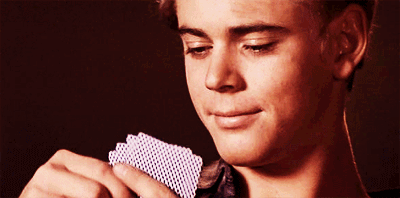
pairing : ponyboy curtis x female!reader
summary :
“you’re just so attractive when you wake, ponyboy curtis,”
warnings : none
notes :
oo this one goes out to those of you who live for this content. i made it for you. i could make these a smol series of the events of a lazy day, let me know.
as always like/comments/reblogs tell me to write fluff. enjoy.
_____________________
10 A.M
when you open your eyes first thing in the morning, the world is already at work.
through your squinted eyes, you look out the window, to greasers and their gangs skipping on the sidewalk, to used corvettes stuttering down the streets, to a few drunk stumblers from last night’s parties.
but none of those things, not a single one, is as radiant as the sight in front of you.
the sun, at its highest point in the sky, shining rays down through the window pane and setting alight the strands of ponyboy curtis’ blonde dyed hair, splayed out on the pillow.
man, he was gorgeous. from his closed, sleeping eyes, to his soft, baby face, down to his flushed lips.
you wanted to steal a thesaurus and look for some word for what pony was, because beautiful did not encompass it.
then he yawns, and you laugh
“hm, what’s so funny,” he mumbles, his words still thick and hoarse with sleep.
“you’re just so attractive when you wake, ponyboy curtis,” you giggle.
he just smiles, and wraps and arm around you as you turn your back to him so he can pull you closer.
you’re wore one of ponyboy’s more comfortable shirts to sleep when you crashed here. tonight particularly because you’d gotten pretty smashed at a party, a party pony was finally allowed to go to ‘cause he had a girl now, like steve and soda.
“what’re we gonna do today, doll,” he asks, breathing the question down your back and making the hairs on your neck tingle.
you turn back to face him, kissing his cheek softly and nuzzling into his neck.
“i just want to lie here forever with you,” you whisper, moving to straddle him.
for a moment, you just look at each other. he moves a hand to cup your face, thumb stroking your bottom lip.
“you’re so beautiful, (name),” he finally speaks. his voice is still hoarse. you think that it’s pretty hot.
“i know, how’d you get so damn lucky?” you quip, giggling at your destroying the mood.
then you squeal when his hands move to your hips, and push you off him, hitting the bed with a thud.
he props himself up on his shoulder and looks down at you, smiling.
“you’re a real funny broad, huh? maybe we should get you on tv,” he says and tickles at your sides furiously, and the room fills with your choked laughter, you’re trying not to wake the whole house.
when he stops, you’re just looking at each other again. his fingertips move along your thigh in appreciation. you could love him.
“let me get you something to eat, doll,” he says, brushing back the stray baby hairs that line your face, before the bed dips and he walks quietly to the kitchen.
you wait for him in your comfortable spot on his bed, fully prepared for the regal breakfast in bed he’s about to bring you.
you are not prepared for him to return with a plated slice of chocolate cake and him tossing a bag of chips onto your chest.
“chef curtis, i had no idea you had such skill in the kitchen,” you smile at him as you tear open the bag.
“yeah, i keep telling darry he has to keep working, or how else will he put me through culinary school,” he jokes as he tastes chocolate frosting.
he extends a bite of the cake toward you, and you eat it off the fork. it was incredible, and if things with pony didn’t work out, you just might consider marrying this cake.
when you’ve both finished your questionable “breakfast,” you’re lying on the bed again, and pony looks up at the ceiling and you turn on your side to look at him.
his hair is still blonde, for the most part, from when he dyed it a few months ago, but you can see his warm brown roots starting to grow in. you reach up to grab a small flame of his hair.
“you have to decide pony, you gonna dye your hair back, or are you going to keep it blonde?”
he looks up at you in thought.
“well how’d you like it, doll?”
you think before you say, “i like it right now, it’s gold.” he smiles.
you look at each other rather mischievously for a moment, before you both launch off the bed, giggle the whole way to the bathroom like idiots.
in minutes, ponyboy’s head is in the sink as you stand over him, running gloved hands through his newly bleached hair as the remnants of the solution slip through the drain. he’s half smiling at you when he draws your face down to kiss him. his lips are soft and they taste vaguely of chocolate frosting. he kisses you slow and sweet, like he just wants to make you feel good. he does.
then he launches upward, droplets of water flying to hit your face. interrupted moments were quite the common theme this morning.
you’re both laughing as he brings you to kiss him once more through your smiles. you think this is perfect, that every morning should be like this.
you think there’s nobody you’d rather kiss with morning breath.
#the outsiders#ponyboy curtis#ponyboy x reader#hope you guys dig this one#you really deserve it after putting up with me in the sad bitch hours these past few days#interact with me#love me#aFfeCTioN
60 notes
·
View notes
Text
Annotated Bibliography #1
Contemporary/Classic Novels: Annotated Bibliography
Hinton, S. E. (2016). The outsiders. Harlow England: Penguin Books.
YA Universal Theme(s): Friendship
Lexile level/ Grade range: 750L/Secondary(HIgh School)
Short summary of the highlights: This story takes place in 1965 in Tulsa, Oklahoma. The main character Ponyboy Curtis, who is 14 years old, struggles internally with figuring out who he is. He is a "Greaser," which means you come from the poor side of town. The wealthier kids in town are called "Socs." It is evident that the more money you have, the more you can get away. Ponyboy and his two brothers have lost their parents, and the oldest brother Darrel is in charge of his brother's well-being. The members of the "Greasers" have powerful bonds and loyalty to one another. Throughout the story, they help one another deal with the situations and conflicts that make them "outsiders" in their society.
Lowry, L. (2011). Number the stars. Paramount: Clarion.
YA Universal Theme: Friendship
Lexile Level/Grade range: 670L/4th-8th grade
Short Summary of the highlights: This historical fiction novel takes place in 1943 in
Copenhagen, Denmark, during World War II. The main character, Annemarie Johansen, and her family help their friends, the Rosens, escape from the Nazis. Through trust and true friendship, the Johansen family does everything to help the Rosens while avoiding being caught by the Nazi army.
Steinbeck, J. (2000). Of mice and men. London: Penguin Classics.
YA Universal Theme(s): Friendship
Lexile level/ Grade range: 630L/Secondary(High School)
Short summary of the highlights: Steinbeck’s historical fiction novel takes place in
California during the Great Depressions. It follows two main characters, Lennie Small
and George Milton, who are poor migrant workers who head together to a ranch to find
work. They become close friends with the same dream: to own a piece of land.
Lennie has a mental disability. George takes care of him and helps him navigate the
day-to-day expectations, and most importantly, the issues that arise during their time at
the ranch.
Twain, M. ( 2010). The adventures of Tom Sawyer. New York :Library of
America.
YA Universal Theme(s): Friendship
Lexile level/ Grade range: 560L/Secondary(High School)
Short summary of the highlights: This historical fiction novel takes place in the 1840s in the Mississippi River town of St. Petersburg, Missouri. The main character is a
mischievous boy named Tom Sawyer. Since he is an orphan, he lives with his Aunt Polly,
brother Sid, and cousin Mary. The most important relationship is the one he has with
Huckleberry Finn, who is the son of the town drunk and does whatever he wants. This
friendship is set in motion one night when they witness a murder at the graveyard. Tom
and Huck go on numerous adventures, which in the end help change society's perception
of them.
Zusak, M. (2007). The book thief. New York :Alfred A. Knopf
YA Universal Theme(s): Friendship
Lexile level/ Grade range: 730L: Secondary(High School)
Short summary of the highlights: Zusak’s historical fiction novel is centered around a
a young orphaned girl named Liesel living in Germany during World War II. She doesn’t know how to read but steals her first book after her brother’s funeral. She goes to live with her foster parents Hans and Rosa, who are not Jewish, nor do they agree with the beliefs of the Nazis Party. Hans begins to teach Liesel how to read at midnight in the basement. She begins to steal books where she can find them. Liesel befriends the Jewish boy who they are hiding in the basement. She realizes that they have a lot in common. One day Max is sent away because it is no longer safe for him to hide at Hans and Rosa’s home. Max leaves behind a book that he wrote for Liesel called The Word Shaker, about their friendship and his hope to reunite someday. Sometime later, Liesel is given a blank
notebook to write her story in which she titled ‘The Book Thief.’
0 notes
Text
Green Pancakes, You Dig?
For a novel that includes three adolescent deaths, The Outsiders by S.E. Hinton is pretty heartwarming. Between fight scenes and fires, green pancakes and chocolate cake give readers a charming Curtis family slice of life.
Seemingly opposing themes of violence paired with loyal love has brought with it criticisms claiming the novel romanticizes hood life. I disagree. The novel’s purpose behind these two contrasting themes is to communicate one of The Outsiders main morals: people are people.
Throughout the novel, Ponyboy begins to understand that poor kids like him and rich Socs have a lot in common. Both groups find identities in their gangs while also feeling lonely in their own communities from time to time. This dueling dynamic is perhaps most explored in chapter seven during Ponyboy’s conversation with Soc Randy. Even though Randy was friends with the boy Johnny killed, Ponyboy finds himself relating to Randy’s desire to stop fighting.
While constant fighting is the main issue some critics find with The Outsiders, I feel this book uses violence to make a point, not glorify it. In “Speaking with S.E Hinton,” the interview included at the end of the book, Hinton says that she first got the idea for her novel after seeing one of her Greaser friends get beat up by a Soc just because he was a Greaser. It seems that in Hinton’s time, which is not so different from today, many assumed that all poor kids were morally corrupt. In chapter nine, Ponyboy thinks to himself that “half of the hoods I know are pretty decent guys underneath all that grease”...“but people usually go by looks.”
If you look underneath all the smoking, drinking and switchblades, you might find The Outsiders is more about how Greasers can be gold, too, you dig?
0 notes
Text
Annotated Bibliography: The Classics
Alcott, L. M. (2008). Little women. Oxford: Oxford University Press.
YA Universal Themes: Coming of age, family, love, obligation
Lexile Level: 1090L
School Level: Middle School, Grades 6-8
Summary:
The novel, Little Women, written by Louisa May Alcott, follows a few years in the lives of the March sisters: Meg, Jo, Beth, and Amy. The novel takes place in Concord, Massachusetts, following the Civil War. Alcott wrote the book as a piece of literature for women to read; so, it focuses heavily on the argument around the necessity of marriage. Alcott develops such round, strong characters. Throughout the novel, Alcott discusses the advantages and disadvantages of a society that focuses on marrying off women for financial gain. Alcott models the character Jo after herself. Jo is resilient and self-reliant and she works hard to accomplish her goal of becoming a writer. Alcott focuses on Jo’s success as an author as a way to show women that they could reach their goals. However, at the end of the novel, Jo does marry her professor, Friedrich Bhaer. Alcott writes a very women-centered, independent novel, then marries off the most independent woman character. The one difference is, Jo March doesn’t marry based on necessity; she marries the man she truly loves. In that, Alcott is commenting heavily on the ridiculousness of the marital society.
Austen, J. (2012). Pride and prejudice. Pasadena, CA: Salem Press.
YA Universal Themes: Coming of age, family, innocence, love, parent-child relationships, prejudice, pride, security/safety
Lexile Level: 1190L
Grade Level: High School
Summary:
The novel, Pride and Prejudice, centers around the Bennett family. Elizabeth Bennett is the strong female protagonist in a story about finding love versus finding a suitable husband. The matriarch of the family has one goal: finding wealthy, suitable husbands for her five daughters so that they may live a happy life. All of the girls have their own fantasies about marriage and they act upon them. Elizabeth meets a pompous man, Darcy, and vows that she could never love him. Throughout the course of the novel, she pushes him away, thinking that he is arrogant and full of pride. As the story progresses, she sees what a kind and giving man he could be and they end up married at the close of the novel.
Lowry, L. (2014). Number the stars. Boston: Houghton Mifflin Harcourt.
YA Universal Themes: Abuse of power, beating the odds, corruption, courage, family, fear, freedom, heroes, justice, pride, need for change, perseverance, peace, religion, survival, war
Lexile Level: 670L
Grade Level: Grades 5-6
The novel focuses on two young girls living in Copenhagen, Denmark during World War II. Annmarie is a blonde-hair, blue-eyed German girl while Ellen is of Jewish decent with darker features. Once word of the Nazi’s relocating Jews gets out, Ellen’s parents flee to the countryside to hide while Ellen pretends to be Annemarie’s sister who previously died. While hiding in the countryside, Annemarie finds a package that was dropped off by Ellen’s father. Annemarie’s mother sends her with a basket full of food to her uncle’s boat. Although Annemarie is stopped by questioning Nazi’s, she makes it to the boat where her uncle is smuggling Jews to Sweden. The package that Annemarie was carrying to her uncle contained a handkerchief with rabbit’s blood and cocaine, which distracted the dogs that the Nazi’s were using to sniff out Jews. Annemarie learns that she was extremely helpful in smuggling multiple families to a safe place. At the close of the novel, Annemarie learns that her sister, Lise, did not die in an accident, but rather, she was purposefully hit with a Nazi vehicle. Lise was a part of the Danish Resistance, as was her fiancé Peter. Peter was executed during the war for helping and standing up for what he believes in. Upon finding out this information, Annemarie feels closer to her sister and feels like she is a hero in her own right.
Hinton, S. E. (2017). The outsiders. New York, NY: Penguin Group.
YA Universal Themes: Coming of age, corruption, courage, innocence, justice, loyalty, need for change, peer pressure, pride, revenge
Lexile Level: 750L
Grade Level: Middle School, Eighth grade
Ponyboy Curtis is a teenage boy who belongs to a social gang called the “Greasers.” The Greasers are a part of a rival with another gang called the “Socs.” The novel focuses on the dangers of gang rivalry and how it effects the children. After multiple violent attacks and two deaths, Ponyboy is asked to write an assignment in English based on a decent theme. He uses the copy of Gone with the Wind his friend Johnny gave him before dying to find inspiration. Ponyboy decides to write the paper about his experiences in the gang and what he learned.
Steinbeck, J. (2017). Of mice and men. London: Penguin Books.
YA Universal Theme: effects of the past, fear, friendship, freedom, innocence, loyalty, security/safety, survival
Lexile Level: 630L
Grade Level: Middle School, Grades 6-8
The novella, Of Mice and Men, written by John Steinbeck, is set during the Great Depression. The novella follows two male characters, George and Lennie. George is a sympathetic, kind-hearted man who took it upon himself to look after Lennie, a man who is described as slow for his time. The men find a job working on a plantation. A common theme in the story is the American Dream and what that means to the characters. Both George and Lennie dream of purchasing their own farm; Lennie dreams of tending to the rabbits. The men have a lot of trouble holding a job since Lennie often gets himself into trouble. There are many other men who work on the farm. The farm is run by a man named Curly who is the epitome of privilege. Curley’s wife is a very troublesome character; the workers all think that she “has the eye” and would have no problem cheating on her husband. As the novel progresses, the reader understands that Curley’s wife is simply lonely, living on a farm full of men with no companionship. At the close of the novel, Lennie accidentally kills Curley’s wife when he stokes her hair, similarly to how he strokes the rabbits. George and Lennie then run away before Curley finds his wife dead. George takes Lennie to the river where the story began and asks Lennie to describe the land the two of them plan on buying. While Lennie speaks, George shoots Lennie killing him before Curley would get the chance to find them. The novella describes the impossibility of the American Dream during the Great Depression. All the workers have specific visions of an ideal way of life; however, they are unable to reach their goals due to the condition of America.
0 notes
Text
BEANSONBREAD AWARDS 2017 - BEST SONG
AWARD NO.3 - BEST SONG OF 2017
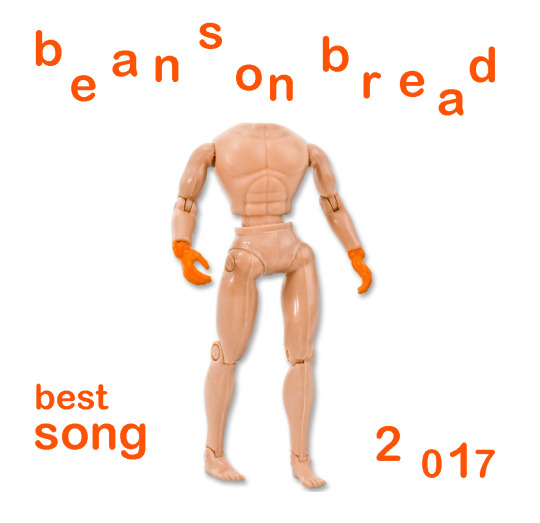
PAST WINNERS
2016 > Solange ‘Cranes In the Sky’ (see full list HERE)
2015 > Kendrick Lamar ‘The Blacker The Berry’ (see full list HERE)
2014 > FKA Twigs ‘Two Weeks’ (see full list HERE)
2013 > Oliver Wilde ‘Perrett’s Brook’ (see full list HERE)
2010 > Untold ‘Stop What You’re Doing (James Blake Remix) (see full list HERE)
2009 > Joker - ‘Digidesign’ (see full list HERE)
2008 > Lil’ Wayne - ‘A Milli’ (see full list HERE)
2007 > Panda Bear - ‘Bros’ (see full list HERE)
2006 > Hot Chip - 'Over And Over’ (see full list HERE)
RULES - A maximum of TWO tracks from any one artist. Songs can be tied in the same position.
Some of my favourite album tracks actually released this year may be on last year’s list as singles or lead tracks and not included in this year’s list. Anyway, these are the songs i’ve enjoyed the most this year.
*SPOTIFY PLAYLIST WITH (ALMOST) ALL THE TRACKS*
Special mention to > Girl Ray ‘(I Wish I Were Giving You A Gift) This Christmas’
- which is an amazing song and should really be in my top 10 but they already have 2 songs in the list and it’s a Christmas song, and i feel a bit weird about including Christmas songs.
THE RUNNERS UP (in no order)..
Limmy ‘Turkish Delight techno version’
Rina Sawayama ‘Alterlife’
Lorde ‘Green Light’
Dubi Dolczek ‘Only Human’
Run the Jewels ‘Talk To Me’
Kirin J Callinan ‘S.A.D’
Tim Heidecker ‘Imperial Bathroom’
Andrew Hung ‘Say What You Want’
Kelela ‘Frontline’
Nilüfer Yanya ‘Baby Luv’
ThisisDA ‘Control, Shift’
James Ferraro ‘Twilight Pretender’
Spinning Coin ‘Money Is A Drug’
GFOTY ‘Tongue’
Cardi B ‘Bodak Yellow’
Pillow Person ‘On Your Way’
Kero Kero Bonito ‘Rock ‘n’ Roll Star’
Ed Dowie ‘David Is Unwell’
Yves Tumor ‘E. Eternal’
Flat Worms ‘Question’
LCD Soundsystem ‘Tonite’
Frank Ocean ‘Chanel’ / ‘Biking’
Big Thief ‘Shark Smile’
Julia Jacklin ‘Cold Caller’
Jessie Lanza ‘I Talk BB’
Dean Blunt ‘As Long As Ropes Unravel Fake Rolex Will Travel’
Frankie Cosmos ‘Fish Bowl’ (Kero Kero Bonito cover)
Sacred Paws ‘Strike A Match’
Spectres ‘End Waltz’
Rostam ‘Bike Dream’
Why? ‘Proactive Evolution’
Grandaddy ‘Way We Won’t’
Aldous Harding ‘Imagining My Man’
SL ‘Tropical’
Amber Coffman ‘No Coffee’
The XX ‘Say Something Loving’
Wasuremono ‘For All The Bears’
IAMDDB ‘Shade’
Fenne Lily ‘What’s Good’
Sir Was ‘In The Midst’
Lana Del Rey ‘Love’
Jay Som ‘The Bus Song’
Sweet Baboo ‘Wild Imagination’
Real Estate ‘Darling’
The Horrors ‘Machine’
Hannah Diamond ‘Never Again’
Charli XCX ‘Boys’
Manuela ‘Supermarket’
Dizzee Rascal ‘Space’
The Saxophones ‘Aloha’
Selena Gomez ‘Bad Liar’
Sneaks ‘Look Like That’
Sega Bodega (feat. Shygirl) ‘CC’
Princess Nokia ‘Tomboy’
Grizzly Bear ‘Mourning Sound’
J Hus ‘Common Sense’
S4U ‘Too Much’
Charlotte Gainsbourg ‘Deadly Valentine’
The Evil Usses ‘Gambino’
Klein ‘Cry Theme’
Aimee Mann ‘ Good For Me’
Superorganism ‘Something For Your M.I.N.D.’
Yorkston/Thorne/Khan ‘Bales’
Colin Stetson ‘All This I Do For Glory’
Lil Yachty ‘Peek A Boo’
Mush ‘Luxury Animals’
MGMT ‘Little Dark Age’
Django Django ‘Tic Tac Toe’ / ‘In Your Beat’
Slowdive ‘Slomo’
N.E.R.D (feat. Rihanna) ‘Lemon’
Alt-J ‘Pleader’
Mura Masa & A$AP Rocky ‘Love$ick’
Ariel Pink & Weyes Blood ‘Tears On Fire’
Ski Mask The Slump God ‘Catch Me Outside’
Francois & The Atlas Mountains ‘Grand Dereglement’
Animal Collective ‘Kinda Bonkers’
Yung Nnelg ‘Forrest Gump’
Wharfwhit ‘Keep U Sweet’ / ‘Elbows’
Stormzy ‘Big For Your Boots’
Alvvays ‘In Undertow’ / ‘Hey’
Luxury Dad? ‘Cowbell’ / ‘Millennial Boogie (or whatever)’
Vince Staples ‘Big Fish’
Missy Elliott ‘I’m Better’
Thundercat ‘Them Changes’
Mac DeMarco ‘On The Level’
Japanese Breakfast ‘Diving Woman’ / ‘Road Head’
Robin Allender ‘Train Dreams’
Sleaford Mods ‘B.H.S.’
Laurel Halo ‘Jelly’
Mun Sing ‘Eye’ / ‘Revenge’
Hype Williams ‘Loud Challenge’
Ariel Pink ‘Feels Like Heaven’ / ’Bubblegum Dreams’
J Hus ‘Did You See’
Drake ‘Passionfruit’
Lil B ‘Still Run It’ / ‘DJ BasedGod’
John Maus ‘The Combine’
Kamaiyah ‘Playa In Me’
Alexis Taylor & Lung Dart ‘I’m Ready’
Aimee Mann ‘Goose Snow Cone’
Terry ‘Take Me To The City’
St. Vincent ‘Los Ageless’
Jlin ‘Nyakinyua Rise’
Oro Swimming Hour ‘Martial Arts Washing Cars’
Alien Stadium ‘This One’s For The Humans’
Jay Som ‘Baybee’
Liars ‘Cred Woes’
S4U ‘Friends’
Brian Eno with Kevin Shields ‘Only Once Away My Son’
Bjork ‘The Gate’ / ‘Blissing Me’
Hercules & The Love Affair (feat. Sharon Van Etten) ‘Omnion’
Tara Clerkin ‘John’
Bonnie Prince Billy (with The Roots of Music) ‘The Curse’
Iglooghost ‘Bug Thief’
SOPHIE ‘Ponyboy’
Insecure Men ‘Subaru Nights’
Young Thug ‘Family Don’t Matter’
Yung Lean ‘Red Bottom Sky’
ESPRIT ‘Flounder 202’
Giant Swan ‘Celebrate The Last 30 Years Of Human Ego’
Oneohtrix Point Never (feat. Iggy Pop) ‘The Pure And The Damned’
Four Tet ‘Two Thousand And Seventeen’
Mount Kimbie (feat. King Krule) ‘Blue Train Lines’
Beak> ‘Sex Music’
Wiley ‘Speakerbox’
Baxter Dury ‘Miami’
Alabaster dePlume 'Be Nice To People'
Drahla ‘Silk Spirit’
The Moonlandingz (feat. Rebecca Taylor) ‘The Strangle Of Anna’
Happyness ‘The Reel Starts Again (Man As Ostrich)’
Yves Tumor ‘Limerence’
Coucou Chloe ‘Flip U’
This Is The Kit ‘Moonshine Freeze’
Ibeyi ‘Deathless’
Mogwai ‘Party In The Dark’
Wesley Gonzales ‘I Am A Telescope’ / ‘In Amsterdam’
Iglooghost ‘Infinite Mint’
King Krule ‘Biscuit Town’
Young Thug ‘Liger’
Bas Jan ‘No Sign’
Seamus Fogarty ‘Carlow Town’
Oliver Wilde ‘Big Black Chunk’
Tyler The Creator ‘I Ain’t Got Time!’
TOP 50 SONGS OF 2017...
50. Lice ‘The Human Parasite’
49. Young Fathers ‘Only God Knows’
48. Los Campesinos! ‘5 Flucloxacillin’
47. Mush ‘Alternative Facts’
46. SOPHIE ‘It’s OK To Cry’
45. Phoenix ‘J-Boy’
44. Oro Swimming Hour ‘Ornatrice’
43. Fever Ray ‘To The Moon And Back’
42. Spectres ‘Dissolve’
41. Dirty Projectors & Dawn Richard ‘Cool Your Heart’
40. Rina Sawayama (feat. Shamir) ‘Tunnel Vision’
39. Oliver Wilde ‘You’re So Kool-Aid’
38. Wiley ‘Can’t Go Wrong’
37. Hookworms ‘Negative Space’
36. This Is The Kit ‘Hotter Colder’
35. Playboi Carti ‘Magnolia’
34. Ed Dowie ‘Yungpawel’
33. Arca ‘Saunter’ / ‘Desafío’
32. Brockhampton ‘Gummy’
31. Seamus Fogarty ‘Van Gogh’s Ear’
30. Taos Humm ‘BLUHr’
29. Shabazz Palaces ‘Shine A Light’
28. Sweet Baboo ‘Pink Rainbow’
27. Happyness ‘Through Windows’
26. Field Music ‘Count It Up’
25. Migos ‘T-Shirt’ / ‘Bad And Boujee’
24. King Krule ‘Dum Surfer’
23. Perfume Genius (feat. Weyes Blood) ‘Sides’
22. Kendrick Lamar ‘DNA’
21. Thundercat ‘Show You The Way’
20. Brockhampton ‘Boogie’
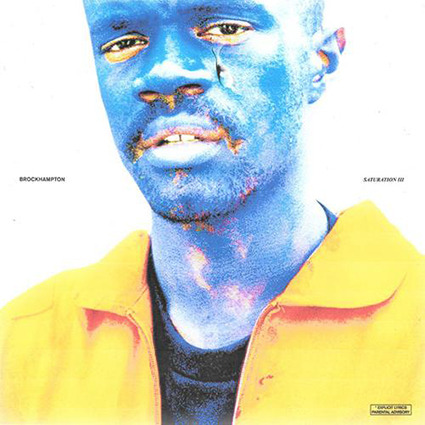
19. SZA ‘Drew Barrymore’

18. Perfume Genius ‘Slip Away’
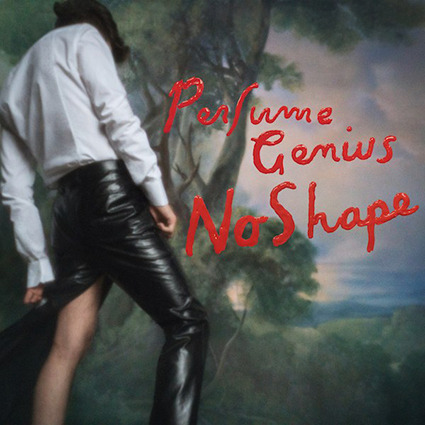
17. Kamasi Washington ‘Truth’

16. Yaeji ‘Drink I’m Sippin On’
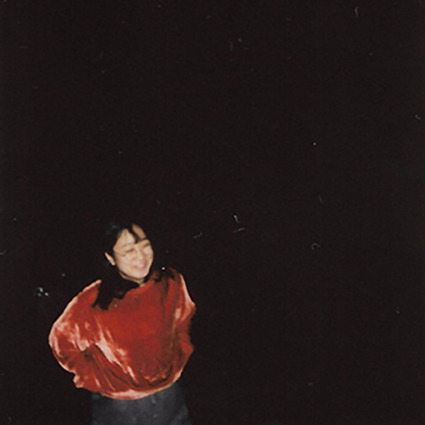
15. Kelela ‘LMK’
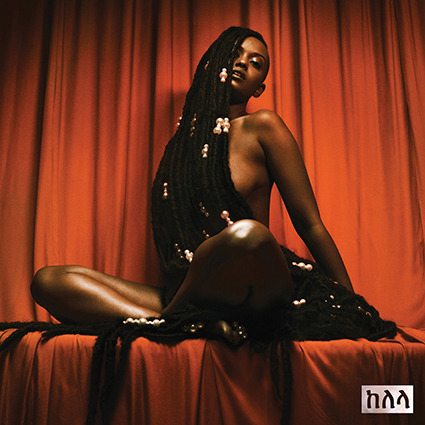
14. Girl Ray ‘Stupid Things’
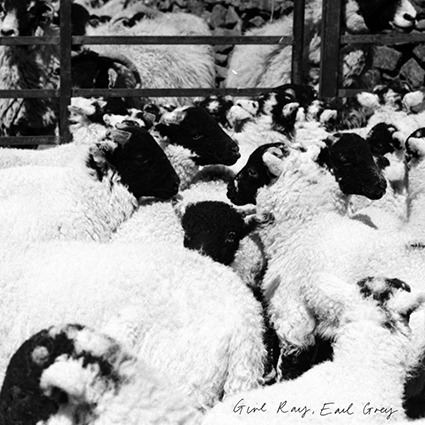
13. Edward Penfold ‘Grasshopper’

12. Richard Dawson ‘Soldier’
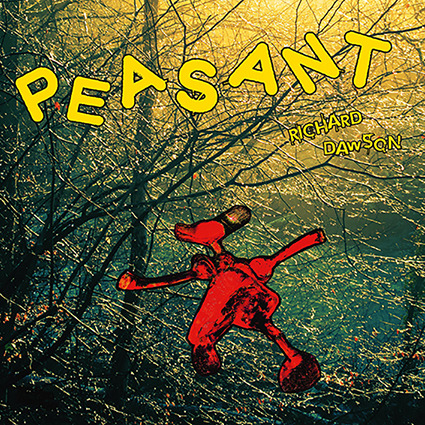
11. Future ‘Mask Off’

10. Mount Kimbie (feat. Micachu) ‘Marilyn’
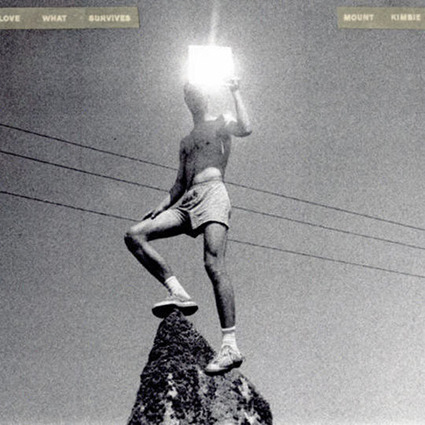
9. Self Esteem ‘Your Wife’ / ‘OMG’

8. Blanck Mass ‘Please’

7. SZA (Feat. Travis Scott) ‘Love Galore’

6. Kendrick Lamar ‘HUMBLE’
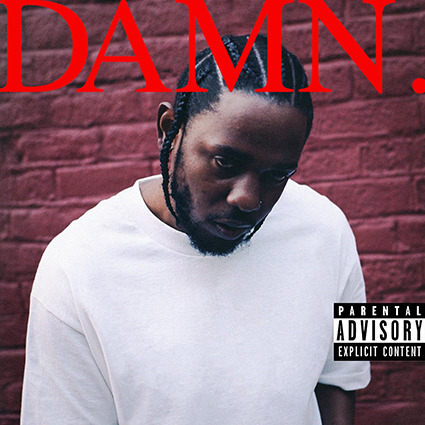
5. Yaeji ‘Raingurl’
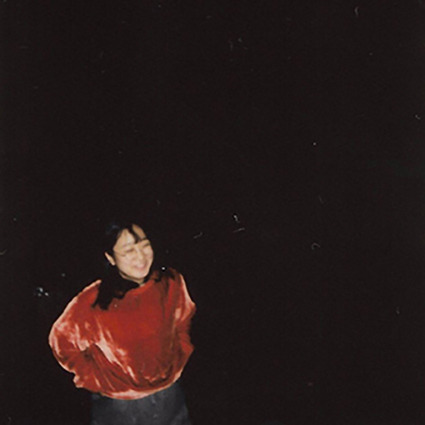
4. Edward Penfold ‘Garden Fresh’

3. Tyler, The Creator ‘See You Again’

2. Girl Ray ‘Preacher’
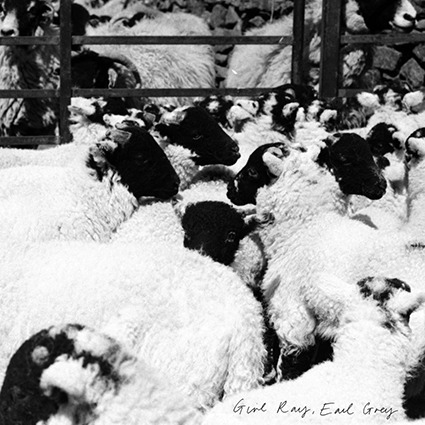
1. Richard Dawson ‘Ogre’

0 notes
Text
10 Great and Easy English Books You Must Read

1.Charlotte’s Web – E.B. White
This is a lovely novel that all age groups can understand. Aimed at native English speaking children, there are many adults who still say this famous book is their favorite. This is part of the national curriculum in many schools around the world, so it’s quite possible this book will also come up in conversation. You can almost guarantee that the majority of native English speakers have read this book at least once.
Plot Summary
A baby pig is almost killed because of his status – he is the smallest pig that was born and he is considered to be useless and of no value. The pig is saved by a little girl called Fern Arable. She adopts the pig and takes care of it. She gives him the name Wilbur.
Fern grows sad when Wilbur grows up and has to be sent away to a farm owned by her uncle. She has a strong relationship with Wilbur. When Wilbur goes to the farm, all the other farm animals ignore him and he’s left crying for his human friend. One day he hears a voice, but he can’t see anything. This voice promises to become friends with him.
The voice belongs to a small spider called Charlotte. Charlotte the spider knows that the farmers are planning to kill Wilbur. She promises to make a plan to save his life. The farmers are surprised the next day when they see the words “some pig” written in the web* Charlotte has made. Charlotte asked for the other animals’ help over the day to write messages everywhere.
Wilbur is sad when Charlotte disappears. But in the end, her baby spiders turn out to be great company for the pig. They continue to protect each other and the story ends well.
*webs are the sticky traps that spiders make.
2.Mieko and the Fifth Treasure – Eleanor Coerr
This book is not really so famous, but it is on the recommended book list. What’s great about “Mieko and the Fifth Treasure” is that it’s short. At only 77 pages long, this will be an easy read. Again this book is aimed at young native English speakers, so if you’re learning English, the level won’t be so difficult. This book will keep you interested as you’ll learn many interesting things about Japan and its culture.
Plot Summary
This is an emotional story about Mieko. Mieko is a talented artist and calligrapher (handwriting artist). Her hand is badly hurt during the bombings of the war. The scared little girl is sent to live with her grandparents in the countryside where it is safer.
Mieko is worried and afraid that she’s lost her 5th treasure – the “beauty in her heart.” This treasure is the key to her happiness and her beautiful art.
Mieko starts a new school. Her new classmates are mean. They constantly laugh at her and tease her which just makes her angrier. Her grandparents eventually manage to lift her darkness through their patience and wisdom. She also finds a good friend in Yoshi. Yoshi is one classmate who is really kind.
Mieko also grows close to Yoshi’s aunt. Her friend’s aunt is strict, but kind and encourages Mieko to pick up her paintbrushes again.
3.The Outsiders – S.E. Hinton
This short novel is perfect for EFL learners. It has modern themes and typical teenage issues that people around the world have experienced. There are very few cultural notes in this, which means you don’t need much background information. The sentences are short and easy to understand. The vocabulary is also very easy. You should be able to read this book without difficulty.
Plot Summary
Ponyboy Curtis is one of the main characters. He is a part of a gang of teenagers called the Greasers. After he leaves the movie theater one day, he’s attacked by a rival (enemy) gang. Ponyboy’s friends chase the group away and he is saved.
The next evening, Ponyboy and his friends go to watch a movie again. They sit behind a few pretty girls from the other gang. They end up sitting together with the girls. Ponyboy and Cherry learn that they have a lot of things in common even though they are from different gangs. The boys begin to walk the girls’ home, but on the way they meet the girls’ boyfriends. The girls have to leave so a fight does not begin.
Because Ponyboy arrives late at home his brother becomes angry. This causes them to fight. As a result Ponyboy tries to run away from home. They meet up with the rival gang again and yet another fight begins. This time one of the enemies is killed.
Ponyboy is really scared. They hide in a church and try to hide their appearance by dyeing (coloring) their hair. A number of different fights break out between the two gangs. Eventually Ponyboy wakes up in the hospital.
A trial is set in the courtroom and the judge has to decide Ponyboy’s fate (future). Is he guilty or not guilty?
4. The House On Mango Street – Sandra Cisneros
The great thing about “The House On Mango Street” is that it’s an interesting read. It’s written from the point of view of the writer. You can really feel what the protagonist (the main character) feels. The sentences are really short so it’s also easy to understand. There are a few challenging words and a little bit of descriptive language, but you can usually understand them with the context. Another great thing about this is book is that it gives you a deep understanding of a different culture.
Plot Summary
This book follows the life of Esperanza, a Mexican girl. The novel takes place over the period of one year. Esperanza moves into a new home on Mango Street. The house is much better than her old one. It is the first house her parents have ever owned – all their other houses have been rented. Esperanza is not very happy because she had been dreaming of a different home – a bigger one. Their new house is old and small. The house is located in a busy Latino area of Chicago. In the new home, Esperanza feels like she has no time to be alone. She promises herself that one day she will leave and have her own home.
Throughout the novel the young girl grows up a lot. The story follows her life as she makes friends, her body changes and she begins to have feelings for a boy. With her new friends, she has many adventures. When she goes back to school after the vacation Esperanza is embarrassed about her family being poor. She writes poetry secretly to make her feel better.
There is a lot of focus on other women in the community and Esperanza hopes never to be like them. Through watching the older women and how they are stuck, she knows that she wants to leave.
5.Thirteen Reasons Why – Jay Asher
This story takes place in the present, which means the writer writes using simple grammar. All sentences are short and the vocabulary is relatively easy. The interesting grammar and short paragraphs make this a quick and easy book for ESL learners. This is an award-winning book and on the NY Times best books list, so it’s worth a read. This book deals with some heavy issues. If you’re looking for something light and happy to read over the summer vacation, you should not read this book.
Plot Summary
The main character is Clay Jensen, a quiet high school student. He comes home from school to find a parcel at his front door. He does not know who sent it. He opens it and discovers 7 cassette tapes. These tapes are from Hannah Baker, his previous classmate. She had emotional problems and has committed suicide (killed herself).
The tapes came with instructions. The paper stated that they should pass the tapes from one student to another student. There are 12 people in total. In the paper, she explains to these people that they helped her die – she gives them 13 reasons. Hannah also sends another set of tapes to a different person. She gives them a strong warning that if they don’t pass the first set of tapes onto the next person, the whole school will know how they were a part of her death.
We hear about her pain. She talks about her first kiss, people who lied to her and stole from her. Everything started with gossip. The gossip then grew and became out of control. The book follows each person’s story and the reason why she felt hurt including her English teacher who didn’t take her seriously.
6.Peter Pan – J.M. Barrie
Almost everyone knows the story of “Peter Pan” which is why this is an easy read. Being familiar with a story already helps the reader to understand the text better. This book is aimed at children, but it continues to be enjoyed by adults around the world too.
Plot Summary
Every night Peter visits the Darling family house and listens to Mrs. Darling tell bedtime stories. He sits on the window listening. One evening, they see Peter trying to escape. As he tries to run away, he loses his shadow. He goes back to get his shadow. He wakes up the daughter of the house, Wendy Darling. Wendy helps him attach his shadow to his body again. Wendy tells him she knows a lot of bedtime stories too.
Peter invites Wendy to return to Neverland with him. He wants her to be the mother of the Lost Boys. Wendy agrees to the mission and asks for her brothers Michael and John to join them.
They have a magical flight as they travel to Neverland and have many adventures along the way. Wendy is nearly killed and the boys build her a house in the trees to recover. After Wendy is okay, she takes the role of the mother.
After all their adventures and fun, Wendy decides that her place is at home with their mother. Wendy helps all the Lost Boys return to London. But Peter doesn’t want her to go. Instead he tries to trick her. He tells her that their mother doesn’t want them anymore. However, he understands how sad their mother must be. In the end, he decides to let them go home.
7.The Old Man and the Sea – Ernest Hemmingway
This is a famous classic. Almost all native English speakers will have read this book at some point in school. So, if you ever find yourself in a conversation about literature and books, this is a good one to talk about. At some points it has a little bit of difficult vocabulary, however, it is short and you won’t have too much trouble being able to finish it.
Plot Summary
This is a story of a long fight between an old, experienced fisherman and the best fish he ever caught. Santiago has returned to the village without any fish for 84 days. The young boy who helps Santiago is told by his parents to join another boat. But the young boy continues to help the fisherman at night.
On the eighty-fifth day, his luck changes and so does his life. Santiago sails his boat further away. He drops his fishing lines. At 12 pm, a huge fish (a marlin) takes the bait (the food used to attract fish). The man tries to pull the fish up, but the fish is too big and strong. Instead, the fish begins to pull the boat. The old man continues to fight and hold on to the line. The fish pulls the boat around the sea for two days.
On the third day, the fish gets tired. Santiago is able to pull the fish closer and kill it. It’s the biggest fish he has seen in his life. He begins to sail back to the village, but the blood of the fish attracts sharks. The boat is attacked by a Mako shark, but Santiago is able to kill it. He kills most of the sharks, but there is a problem. They have eaten the meat of the fish and now only the skeleton (bones) is left. He returns back to his home and falls asleep.
All the people of the village are amazed at the size of the fish skeleton. The young boy agrees to be the fishing partner of Santiago once more.
8.The Giver – Lois Lowry
“The Giver” begins in a very interesting way and catches the attention of the readers from the beginning. It has easy-to-understand grammar. Most of the grammar is just past simple and past perfect. All of the sentences are short and there is no confusion in the story. This is a longer book. It’s really easy though, so you’ll finish it quickly.
Plot Summary
Jonas is a young boy. He lives a very safe life with a lot of order and rules. There are many rules and everyone follows them. The citizens’ lives are planned for them and they don’t often make a decision by themselves.
They try not to say anything different. One rule is that you must never say anything that will make another person uncomfortable. Every husband and wife is matched by a special committee. Each family has two children, one boy and one girl.
When Jonas and the rest of his group become the “Twelves” in December, they get special jobs. Because Jonas is smart and respected, he is given an extra special job. His new job is to become the Receiver of Memories. The Receiver of Memories is the only person in the group who can see all of the memories in the past. He must keep these memories secret until he trains another person to take his place. This job is really difficult. This person knows things that others do not, and they also have to deal with all of the sadness from the past.
At first Jonas is really excited. But he soon learns some truths about the people in the community. He comes to understand that this kind of life is unfair. He wants to allow people to make their own choices. Jonas comes up with an interesting plan to change the community. He decides he needs to move the community to another place. In his plan, they will get their memories back and be able to live a good and fair life.
9.Number the Stars – Lois Lowry
This is a realistic novel. It’s based on history. Unlike other historical literature, it’s easy to understand. If you already know a lot of information about World War II, this might be an interesting book for you. It’s not recommended if you don’t know too much about the World Wars. In this case, you will be focusing on trying to understand the facts too much so you will not enjoy the book as much.
Plot Summary
This is a story of hope and courage. The year is 1943 in Copenhagen, Denmark. The area has been taken over by Hitler’s army. There are soldiers everywhere. The life of 10-year-old Annemarie has changed a lot. There is little food and everyone is very scared. There is talk about moving all of the Jewish people to another place. This is difficult for Annemarie because her best friend, Ellen, is Jewish.
This is a different book about the war. It shows it was not only the Jewish people who suffered during the war. Annemarie’s family lost their eldest daughter, Lise, a few weeks before her wedding.
Annemarie will later do what her sister, Lise, did. She will join the resistance party to fight against the Nazis. She ends up being a heroine (a female hero) for a few reasons (which I will not tell you because I don’t want to ruin the story).
10.A Wrinkle In Time – Madeline L’engle
This book has a mix of shorter and longer sentences. The short sentences allow the readers to relax a little bit more. They also create the scene well and let you know what is happening through simple words. There is a lot of vocabulary to learn. It is a good book if you’ve already got experience reading novels in English. Make sure you have your vocabulary notebook with you, just in case there are any cool words that you’d like to learn. This book has MANY!
Plot Summary
Meg is 14-years-old. Everyone sees her as a troublemaker (a person who makes/causes trouble). They think she’s a bad student. Everyone in her family seems to be perfect. Her mom is a very beautiful scientist. Her twin brothers are very athletic. And her little 5-year-old brother, Charles Wallace Murry, is a child genius and can often read the mind of Meg.
One night Meg can’t sleep. She goes downstairs to find her young brother sitting at the kitchen table drinking milk. Later their mom joins them. A strange neighbor called Mrs. Whatsit joins them. Mrs. Whatsit is talking a lot and says that the “tesseract” is real. We (the readers) don’t know what this means, but Mrs. Murry knows what it is. She looks like she is going to faint (fall down from sickness or fear).
Meg and her brother meet a friend the next day. Calvin O’Keefe is a high school junior student. Together, the three of them go to visit an old haunted house which belongs to Mrs. Whatsit. While going there they meet Mrs. Whatsit’s friend, Mrs. Who. Mrs. Who is also very strange. Meg and Calvin begin to like each other. Charles suddenly announces that they should focus on finding their father who is lost somewhere in the universe.
Strange things happen and the older women turn into supernatural (not from Earth) beings. They transport the kids to the universe by the “tesseract.” They stop and visit different planets on the way. The women tell the children that the universe is being attacked by the “Black thing” (the devil).
They find out where Meg’s father is being kept. Charles tries to use his psychic (in his mind) powers to see where their dad is. Eventually they find their dad, but not without drama. Along the way, Meg learns to love. She uses this new love to help them escape.
There are so many cool and fun books to read. It’s always better to find books that are for middle school readers in the US so the language and ideas will never be too difficult to understand.
Reading is a wonderful way to improve your English. It’s an awesome way to learn new vocabulary. It’s a great way to learn how to guess what things mean and at the same time enjoy English in another way. Reading opens your mind.
Reference 10 Great and Easy English Books You Must Read | FluentU English. (2017). Fluentu.com. Retrieved 11 December 2017, from https://www.fluentu.com/blog/english/easy-simple-english-books-read-beginners/
0 notes